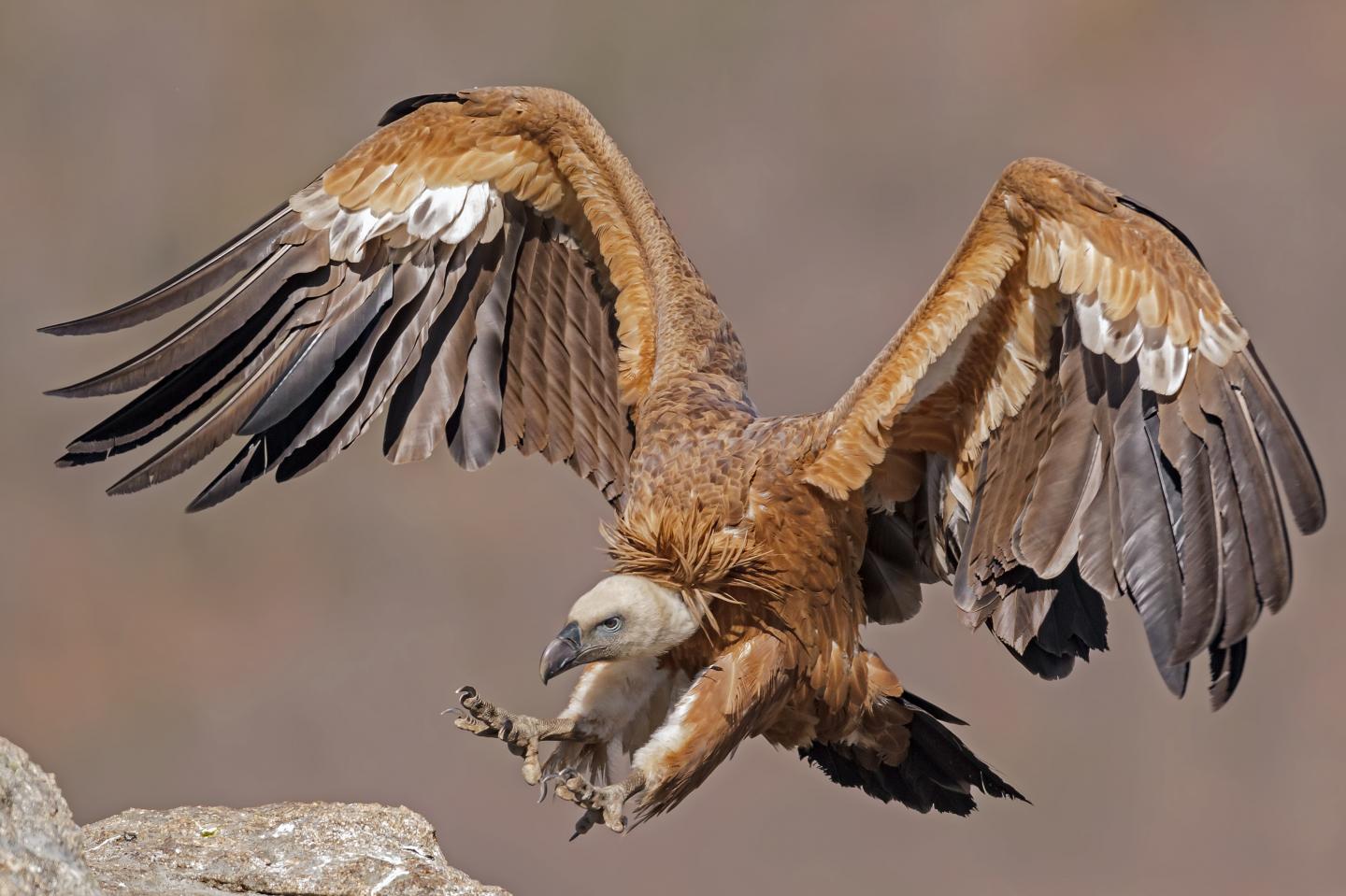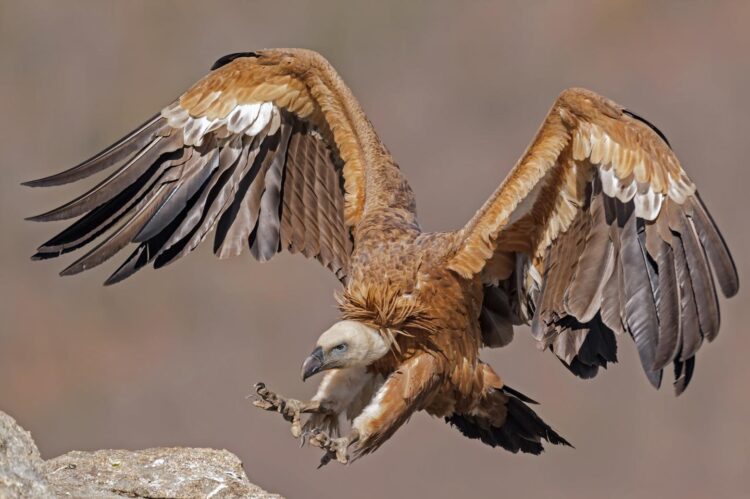
Credit: Jorge de la Cruz
A new analysis published in IBIS examines whether bacteria, viruses, and other microorganisms that are present in wild vultures cause disease in the birds, and whether vultures play a role in spreading or preventing infectious diseases to humans and other animal species.
The analysis examined results from published studies and found that microorganisms, which cause disease in humans, can be found in vultures with some bacterial pathogens showing multi-antibiotic resistance. In some cases, these microorganisms cause health alterations of variable degree in different vulture species, but there was no clear evidence that vultures play a role spreading pathogens to humans and other species. On the contrary, they may actually help to prevent the spread of infectious diseases when they consume and remove decomposing carcasses from the environment.
“Further research should evaluate the potential of vultures in disease regulation to avoid misconceptions and to promote scientific evidence of the ecosystem service they provide. This will help to conserve this globally threatened avian group and maintain the contributions they provide to people,” said lead author Pablo Plaza, of INIBIOMA-CONICET-National University of Comahue, in Argentina.
###
Media Contact
Wiley Newsroom
[email protected]
Related Journal Article
http://dx.





